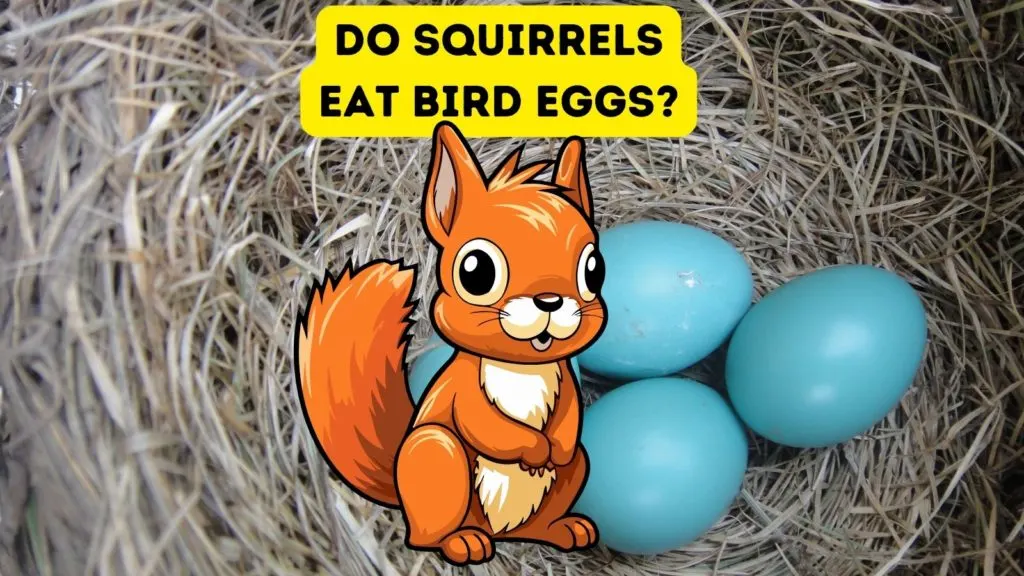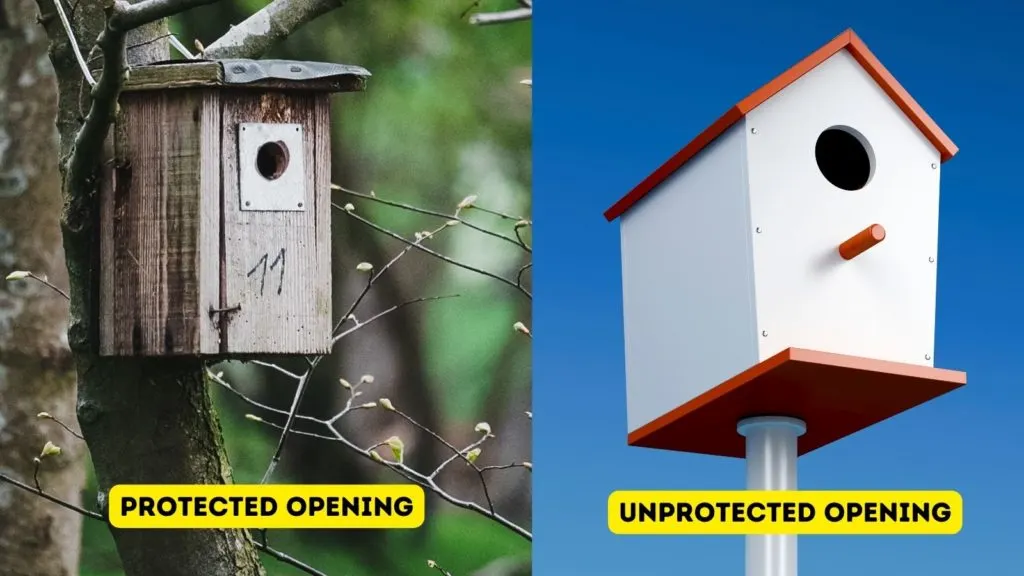When it comes to backyard wildlife, one commonly asked question is whether squirrels eat bird eggs. The answer is not straightforward, as squirrel behavior can vary between species, food availability and even individuals. However, in general, some squirrels do eat bird eggs, though this behavior is not typical of all squirrel species. Let’s look at the different squirrels you might see in your back yard–and ways to help protect bird nests in your yard from squirrels.

Behavior Among Different Squirrel Species
Eating bird eggs is generally an opportunistic behavior for squirrels and is not their primary food source. The frequency can depend on the availability of their preferred foods like nuts, seeds, and fruits. In times of scarcity, squirrels might turn to bird eggs more often.
In addition to eggs, some squirrels may occasionally prey on baby birds, especially if they find unprotected or accessible nests. However, this is not typical behavior for most squirrel species.
It also varies by squirrel species:
- Gray Squirrels: These common backyard squirrels have been known to eat bird eggs occasionally. They are opportunistic feeders, meaning they eat a variety of foods based on availability.
- Red Squirrels: More likely than gray squirrels to prey on bird eggs. Their smaller size allows them to access nests more easily.
- Ground Squirrels and Chipmunks: Less likely to eat bird eggs due to their ground-dwelling habits, but it’s not unheard of.
- Flying Squirrels: Primarily nocturnal, these squirrels have a varied diet but are less commonly observed eating bird eggs.
Squirrels that do eat bird eggs are not particularly choosy about the type. They might consume eggs from various bird species, depending on what they can find and access. This can include eggs from songbirds, ground-nesting birds, and even occasionally from larger birds’ nests if accessible.
How to Help Protect Bird Eggs from Squirrels
Reducing the odds of squirrels eating bird eggs in your yard involves implementing strategies to protect bird nests and discourage squirrels from accessing them. Here are some effective methods:
Use Squirrel-Proof Birdhouses: Opt for birdhouses with small entrance holes that are too tiny for squirrels to enter. Some birdhouses are designed specifically to be squirrel-proof.
Some nesting boxes come with built-in predator guards that can deter squirrels. If you see a metal square or ring around the entrance of the bird house, it has been designed so squirrels can’t chew their way in. Also choose bird houses without a perch that makes it easy for a squirrel to sit on as they work to enter the bird house.

Install Baffle Devices: Place baffles (cone or cylinder-shaped barriers) on the poles of birdhouses or feeders. These prevent squirrels from climbing up to the nests.
Location of Birdhouses: Position birdhouses away from trees, fences, or structures that squirrels can jump from. For increased safety, they can be placed on a free-standing pole in an open area.
Regular Maintenance: Regularly check and repair any damage to birdhouses that could allow squirrels access.
Remove Attractants: Keep your yard clean of food scraps or fallen fruits that may attract squirrels.
Provide Natural Cover for Birds: Planting shrubs and thickets can offer birds natural and safe places to nest.
Prune Trees Near Birdhouses: Trim branches that are close to birdhouses to limit squirrel access.
Implementing these strategies can significantly reduce the likelihood of squirrels preying on bird eggs in your yard. Remember, the goal is to create a safe and welcoming environment for birds while coexisting peacefully with the squirrels in your area.
More Posts You Might Like
- 8 Letter Bird Names - August 14, 2024
- 7 Letter Bird Names - August 14, 2024
- 7 Birds Named After Famous People - July 23, 2024
